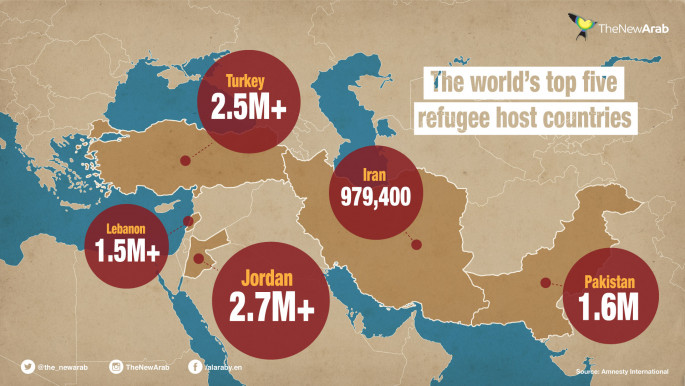Syrian refugees in Lebanon are 'barely coping'
Syrian refugees in Lebanon are "barely coping", with half of children out of school and more families falling into poverty, a UN study has found.
Some 1.5 million Syrians seeking refuge in Lebanon remain highly vulnerable, even after three years of living there, and their economic situation continues to be difficult with more than a third food insecure.
"They remain extremely vulnerable and dependent on aid from the international community. Without continued support, their situation would be appalling," said Amin Awad, director of the MENA bureau of the UN refugee agency (UNHCR).
The report found that families have exhausted their resources and are now taking on "harmful or asset-depleting coping mechanisms" just to survive, such as selling household goods, or housing or land owned in Syria.
Households are increasingly incurring debt in order to buy food, cover health expenses and pay for rent.
Since 2015, there has been a 12 percent rise in the number of families who are moderately to severely food insecure.
About 71 percent live below the poverty line and more than half of families have five or more people living together.
Almost half - 48 percent - of children are not in school, with some households sending youngsters to work.
Lebanon is the second largest host to Syrian refugees after Turkey. Refugees live in some 2,125 communities and locations in urban and rural areas around the country, mostly in residential buildings but others in makeshift homes or informal settlements.
Some 42 percent of households are experiencing one or more of the following: overcrowding, dangerous structural conditions and urgently needed repairs, and no toilet.
"The findings are a reminder to all of us that a significant share of Syrian households in Lebanon are doing all they can with limited means," said Tanya Chapuisat, UNICEF's representative in Lebanon.
"For those who have lived through the violence in Syria and endure hardship in the host country, health care, food, emotional support and education are simply vital."
Compared to the previous year, the situation of refugees had not deteriorated dramatically in terms of health, education, shelter, water and hygiene the report said, crediting $1 billion of aid received.
However, the contribution is only half of the target $2.48 billion requested from a joint UN, government, and inter-agency appeal for Syrian refugees in Lebanon.
The report, Vulnerability Assessment of Syrian Refugees, is the fourth of its kind and includes detailed data from visits to more than 4,500 Syrian refugee households in 26 districts throughout the country.
![syrian refugees lebanon [Getty] syrian refugees lebanon [Getty]](/sites/default/files/styles/image_345x195/public/media/images/DF2D1AF4-6B3F-4BBA-8FEE-0B366ABEFF3A.jpg?h=d1cb525d&itok=Y5yugj9K)




 Follow the Middle East's top stories in English at The New Arab on Google News
Follow the Middle East's top stories in English at The New Arab on Google News


